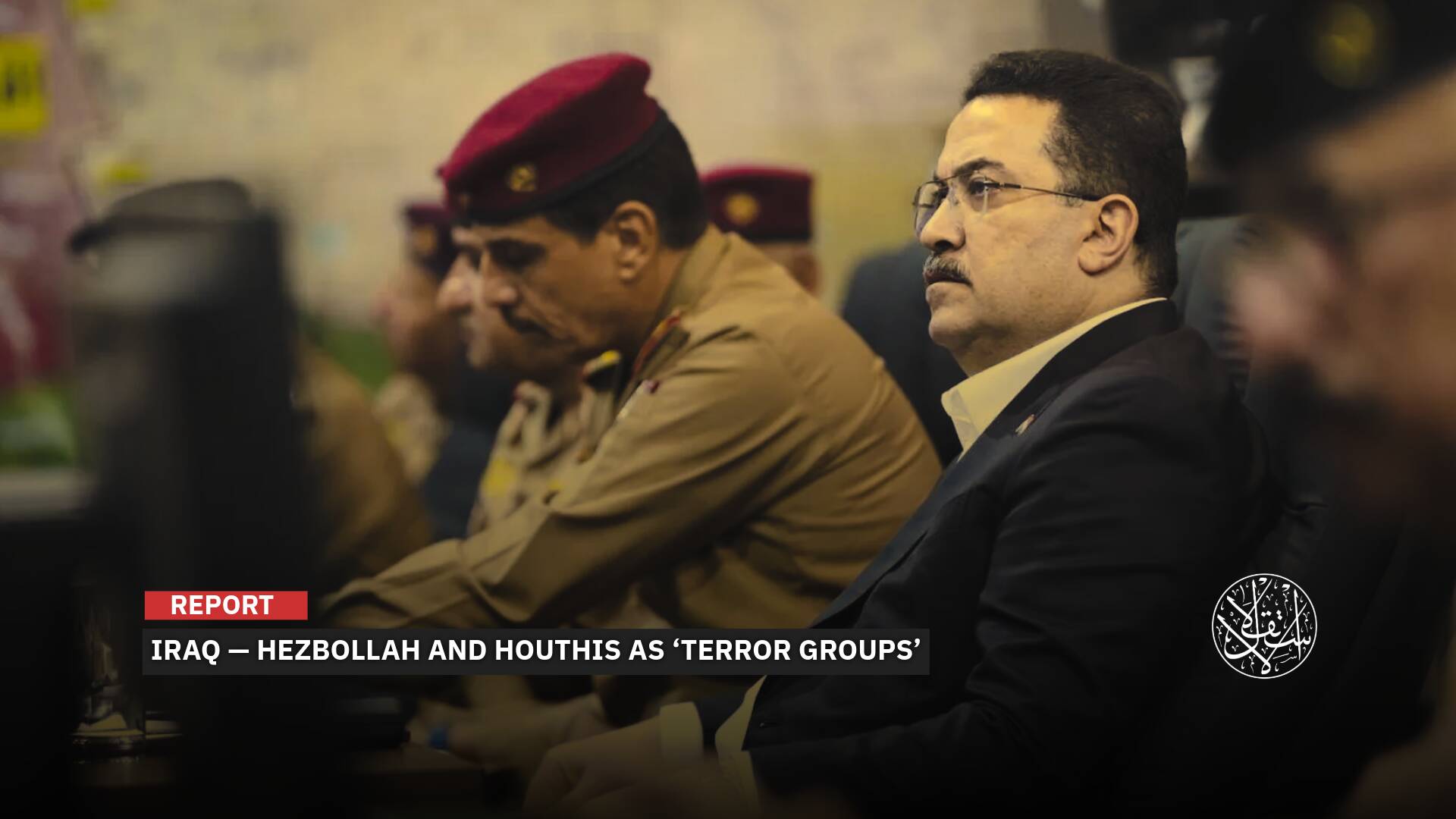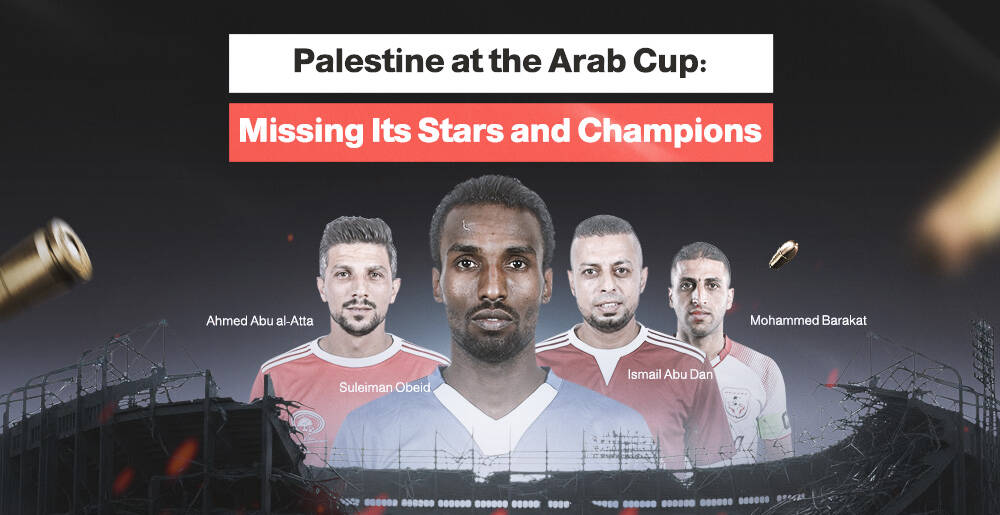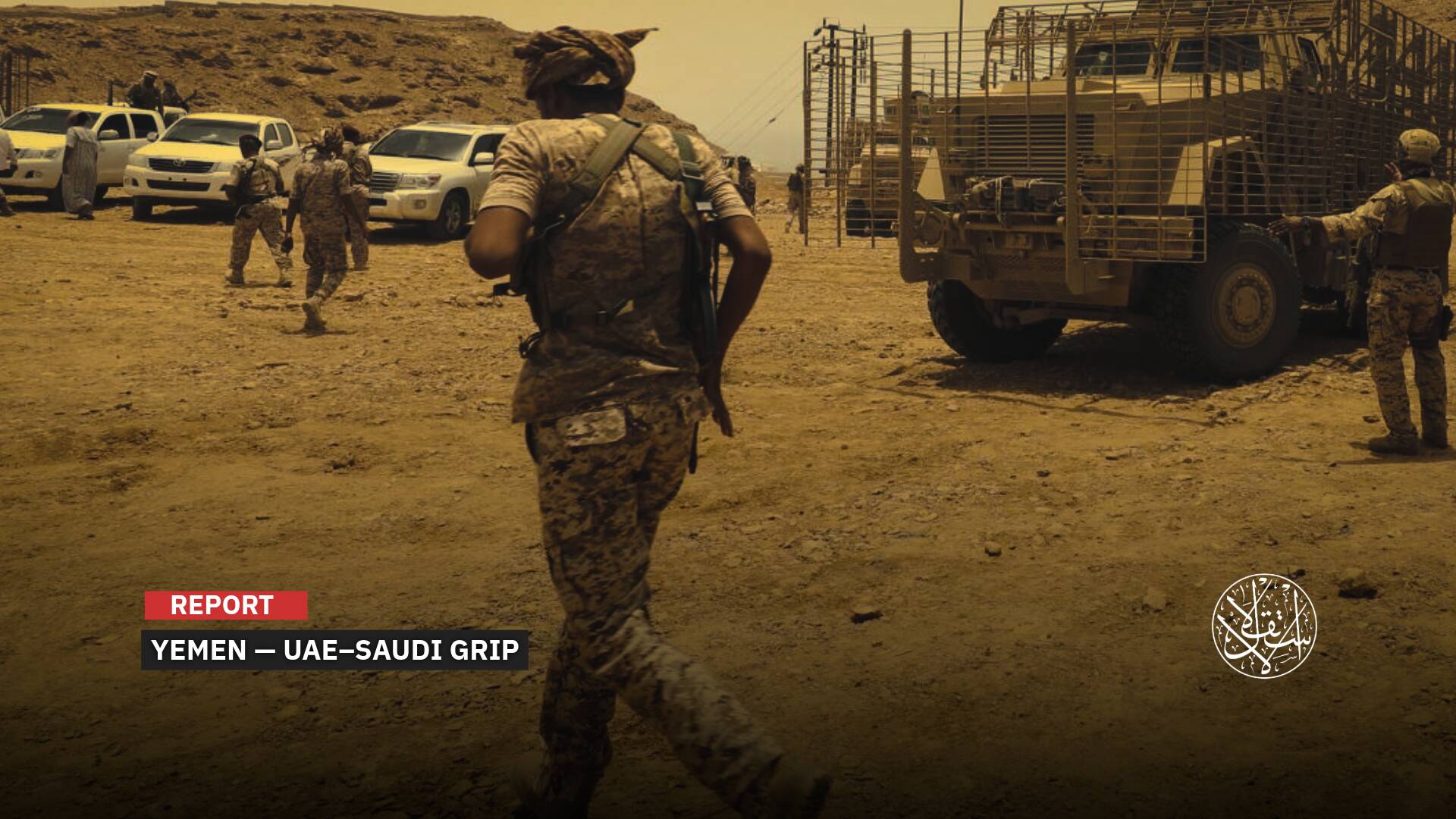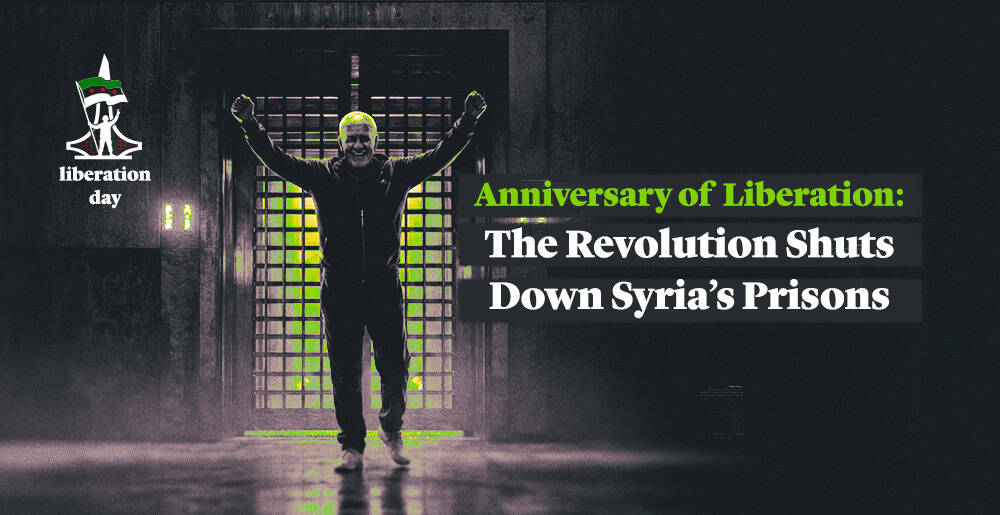Former Diplomat: Trump Proved Europe’s Weakness — Iran May Turn to Retaliation (Exclusive)

“Israel is still betting on a decisive victory in Gaza.”
In an exclusive interview with Al-Estiklal, Abdelhamid Siyam described Iran’s nuclear program as “a form of resistance to decades of sanctions and economic pressure imposed by the US and its allies” from its very inception.
Now a professor of international relations, Siyam noted that the so-called “Iranian threat” has long been used by regional governments to justify normalization with the Israeli Occupation.
“Many of these countries are pursuing normalization for their own gain, even if it comes at the expense of the Palestinian cause, and they’ve agreed to frameworks shaped by the Israeli Occupation’s own vision for ‘peace.’”
On Gaza, Siyam warned that “the war is far from over, as long as there are captives held by the Resistance and as long as the resistance continues.”
He also criticized the International Criminal Court for its handling of Israeli Occupation crimes in Gaza, saying it has remained “deeply silent in the face of genocide.”
Abdelhamid Siyam is a Palestinian political analyst and academic. He holds a bachelor’s degree in Arabic Language and Literature from the University of Jordan and earned both his master’s and Ph.D. in international relations from the City University of New York.
Since 2007, he has been a lecturer in Middle Eastern studies and political science at Rutgers University in New Jersey.
Siyam previously served as an international civil servant with the United Nations for 25 years, holding posts in the Arabic Language Division, the Office of the Secretary-General, and the Spokesperson’s Office. He was also appointed as the UN spokesperson in Western Sahara, Iraq, Pakistan, and Afghanistan, and led the Arabic radio and news division.
Over the course of his career, he has been assigned to missions in Libya, Eritrea, Iraq, South Africa, Botswana, Egypt, Switzerland, China, Morocco, Algeria, the occupied Palestinian territories, and more.

Netanyahu’s Aims
Was “Israel” truly seeking to eliminate the possibility of ‘a hostile nuclear weapon’ in Iran—or is PM Benjamin Netanyahu aiming for something much broader?
There is no doubt that Israel, along with its Western allies, will do everything it can to prevent Iran from acquiring nuclear weapons. But it’s important to note that Israel has consistently exaggerated Iran’s capabilities in this regard. To date, there is no conclusive evidence from the International Atomic Energy Agency or from Western intelligence services—including American ones—that Iran has produced a nuclear weapon or made an active decision to do so.
The alarm over Iran’s nuclear program has been politically driven. Israel has used the “Iranian threat” to stoke fear in Gulf Arab states, a narrative that also serves American strategic interests. In turn, this fear has pushed Gulf states to deepen their military and economic ties with Washington—purchasing weapons and investing in the U.S. economy. A prime example was President Donald Trump’s visit to Saudi Arabia, Qatar, and the UAE, which ended with announcements of $5 trillion in investments under the banner of economic partnership.
For Israel, the real breakthrough came in 2020, when four Arab countries normalized ties with Tel Aviv—ignoring both the Palestinian cause and the Arab League’s 2002 Beirut Initiative, which conditioned normalization on the establishment of a Palestinian state with occupied East Jerusalem as its capital.
The so-called “Iranian threat” provided political cover for countries like the UAE and Bahrain to proceed with full normalization. Even Saudi Arabia began moving in that direction—a process Netanyahu publicly confirmed in his address to the UN General Assembly on September 22, 2023, just days before the outbreak of Operation al-Aqsa Flood.
Saudi Crown Prince Mohammed bin Salman echoed this sentiment in his September 21, 2023 interview with Fox News, stating that normalization talks with Israel had “progressed significantly”—as if a coordinated message had been agreed upon in advance between the Saudi and Israeli leadership.
Since 2005, Netanyahu has consistently pushed the narrative of an existential “Iranian threat” as a shared concern that would bring Gulf Arab states and Israel closer together.
In reality, Iran’s nuclear program was a strategic tool—leverage for negotiations and a path to easing sanctions from a position of strength. Tehran engaged seriously with global powers, agreeing to cap its uranium enrichment and signing the Joint Comprehensive Plan of Action (JCPOA) in 2015, which was unanimously endorsed by the UN Security Council under Resolution 2231.
Facing a region saturated with U.S. military bases—from Iraq and Turkiye to Bahrain—Iran’s nuclear program served as a deterrent, not a declaration of war. When a diplomatic window opened, Iran embraced it, accepting restrictions to keep its program peaceful in exchange for sanctions relief, the unfreezing of assets, and the resumption of oil exports—all while staying below the 20% enrichment threshold.
But it was President Trump, during his first term, who withdrew from the JCPOA, reinstated crushing sanctions, and backed Israeli Occupation ambitions to target Iranian nuclear sites. He also ordered the assassination of Qassem Soleimani, commander of the IRGC’s Quds Force, on January 3, 2020.
In response, Iran saw no option but to escalate its enrichment levels—to signal its seriousness and pressure the West into reviving the 2015 agreement.
Trump also exposed the limited weight of European powers. Rather than stand their ground and defend the JCPOA, European leaders ultimately caved to U.S. pressure in what many saw as a humiliating retreat from their own commitments.

How will the United States’ entry into the war launched by “Israel” against Iran reshape the regional landscape? And what can we expect from Iran in response?
The truth is, Washington was never outside this Israeli war. The U.S. has been deeply embedded in the planning and strategy of this war from the beginning.
Far from being a neutral actor, the U.S. played a central role in shaping the narrative and misleading public perception. On April 11, President Donald Trump issued an ultimatum to Iran: reach an agreement within two months—or face what he described as the “gates of hell.”
Two days after that deadline expired, Israel launched its military assault on Iran.
What Trump’s special envoy, Steve Whitkoff, was demanding at the negotiating table wasn’t a diplomatic solution—it was a surrender. It was about forcing Tehran to raise the white flag. That’s not diplomacy. You can’t call it negotiation when one party has a gun to the other’s head.
Washington knew full well that Iran would never accept such terms. The two-month window wasn’t for talks—it was to finalize military preparations. The assault on Iran’s nuclear sites had already been set in motion.
Every stage—from planning to weapons preparation—was coordinated between the U.S. and Israel. There’s no plausible scenario in which Israel could have carried out a strike of this scale on June 13 without a green light from Washington.
In fact, in the days leading up to the attack, the U.S. deployed strategic bombers—specifically the B-2 and B-52—capable of carrying GBU-57 bunker-busting bombs, the only munitions powerful enough to target fortified facilities like Iran’s Fordow nuclear site near the city of Qom.
This overt American involvement is for sure a game-changer.

Enrichment Options
What options are available to Iran following the strike on its Fordow facility?
Following the strike on Fordow, Iran is now confronted with two potential paths: to absorb the blow and signal a readiness to re-engage diplomatically, or to pursue retaliatory action. It is likely, however, that Tehran will opt for a combination of both.
Tehran has already begun preparing public opinion to absorb the strike. Officials emphasized that the damage was not total, that enrichment will continue, and that sensitive materials had already been removed from the site, so there’s no risk of nuclear radiation. These statements also serve as reassurance to neighboring Arab countries. Iran is clearly working to reduce the perceived impact of the attack while keeping diplomatic channels open. We saw this in Iran’s message at the emergency UN Security Council session on June 22, where its ambassador made it clear that Tehran hasn’t walked away from diplomacy and remains willing to return to it.
If Iran chooses retaliation, it will likely focus on Israeli Occupation targets and perhaps limited strikes on U.S. bases in the Gulf or Iraq—actions that restore national pride without triggering a full-scale war. It’s also possible that Iran will resort to covert operations, targeting specific sites or individuals while denying involvement, just as it has done in the past.
Now, some may interpret Iran’s repeated statements about being open to discussing uranium enrichment limits as a sign of weakness. I don’t see it that way at all. That position isn’t about weakness, and it’s not just a negotiating tactic either—it’s part of Iran’s strategic posture. It’s a way to defend the country and deter threats from a position of strength.
Ever since the 1979 revolution, Iran has seen itself encircled by enemies. The Iran-Iraq war, which dragged on for eight years with clear support from the Gulf states and the U.S., remains the clearest and harshest example that Iran has always been a target. After 2003, with American bases spreading across the region—from the Gulf to Turkiye, Iraq, and later Syria—Iran had no choice but to develop a form of strategic deterrence.
This deterrence has included enrichment—not necessarily to build a bomb, but to create leverage. At the same time, Iran invested heavily in its missile capabilities, both ballistic and hypersonic, as well as a wide range of drones. And it built alliances across the region with sympathetic local forces in countries like Yemen, Lebanon, Syria, and Iraq. All of this is part of a broader effort to shield the country from encirclement and external aggression, especially from the U.S. and Israel, as well as regional governments aligned with them.
It’s important to remember that uranium enrichment is what led to the 2015 nuclear agreement in the first place. Iran showed it was willing to cap enrichment in exchange for lifting sanctions and protecting its sovereignty. But when President Trump tore up that agreement in 2018, it sent a clear message to Iran: no matter how cooperative you are, the West might still walk away. That’s why Iran sees no choice now but to return to enrichment—not because it’s racing for a bomb, but to show the world that it’s serious about defending its rights and will only return to an agreement if it ensures real protection from future violations.

Gaza and the Mediators
Has “Israel’s” war of extermination in Gaza achieved its objectives—or are the continuing, albeit limited, Resistance operations still preventing it from doing so?
The war in Gaza is far from over. As long as captives remain, as long as Israel continues to impose starvation on the entire population, and as long as the Resistance is still capable of carrying out even limited operations, the war cannot be considered finished.
Resistance movements are still active—they are fighting, negotiating, maneuvering, and refusing to surrender, despite Netanyahu’s constant calls for them to raise the white flag. As long as that continues, this war has not reached its end.
In fact, the situation could escalate further following the recent attack on Iran. If Israel comes to believe the Iranian threat has been permanently neutralized, its policies toward Gaza, the West Bank, southern Lebanon, and Syria could become even more aggressive, more brutal, and more uncompromising.
That said, the humanitarian catastrophe in Gaza may finally be enough to stir the conscience of the international community—particularly in Europe. That kind of pressure could push the United States to take more meaningful action to halt the starvation and mass killing of civilians.
How do you respond to those who claim that Operation al-Aqsa Flood was a reckless gamble?
That argument lacks all credibility, as if Israel needed an excuse to launch an assault on Gaza or the West Bank. It’s absurd to think that October 7 was the starting point of Israeli aggression.
Let’s not forget what Israel has done to Gaza over the past two decades. Just a few examples:
In November 2006, there was Operation Autumn Clouds in Beit Hanoun, following the capture of Gilad Shalit. Eighty-two people were killed, and 250 were wounded—18 of them from a single family, the al-Athamneh family.
Then came Operation Cast Lead between December 27, 2008, and January 18, 2009, which killed over 1,400 civilians. The Goldstone Report documented the Israeli war crimes committed during that aggression.
Operation Pillar of Defense followed in November 2012, killing 155 Palestinians, including 27 children, 14 women, and 8 elderly people.
Then, in July 2014, came Operation Protective Edge, which left over 2,100 dead and more than 11,000 wounded.
In 2018 and 2019, during the Great March of Return protests near the fence, Israeli Occupation snipers shot demonstrators. The UN report by Santiago Canton documented 189 Palestinian deaths, including 35 children, three medics, and journalists.
In May 2021, during Operation Guardian of the Walls, 200 Palestinians were killed, 32 residential towers were destroyed, and even international media offices were targeted. Thirteen Israelis died.
Does anyone seriously believe Israel needs new excuses to invade Gaza? What about the West Bank, where the rate of killings has surged to unprecedented levels since the Second Intifada? Is Resistance even in control of the West Bank? And what of the settler incursions, the land seizures, and the daily violence?
Anyone claiming that Operation al-Aqsa Flood was reckless fundamentally misunderstands the nature, role, and purpose of the Israeli Occupation—not just in Palestine but across the region. Was there an armed resistance movement in 1981 when Israel bombed the Iraqi nuclear reactor? What threat came from Tunisia in 1985 when it bombed the PLO headquarters? What prompted its repeated attacks on Syria and its occupation of strategic areas like Mount Hermon?
To portray Israel as a peace-seeking partner is to ignore its long, violent, and criminal record in Gaza, the West Bank, Jordan, Lebanon, Syria, and Egypt since 1948. That narrative simply doesn’t hold up under historical scrutiny.
How do you assess the role of mediators in this war? Could countries like Egypt have done more, especially given its shared border with Gaza?
The mediation process, if we can call it that, has largely been limited to passing messages back and forth—from Israel to the resistance and vice versa—via the United States. Egypt’s role has been little more than that of a courier, included mostly so it wouldn't disrupt the process by being left out.
Qatar was in more direct communication with the Resistance. It delivered Israel’s conditions, received responses, and relayed them back.
But the content of those negotiations was problematic from the start. Israel’s conditions—presented through the American mediator—amounted to demands for total surrender. The Resistance would study the proposals, suggest amendments, or offer counterpoints, which were then sent back to the Americans. But from the beginning, the mediators knew these demands were unacceptable, yet they allowed blame to be shifted onto Hamas.
That’s why the negotiations went nowhere. Netanyahu’s conditions are impossible to accept. How could a movement that has lost thousands of lives, including many of its senior leaders, simply surrender?
Israel still believes in the possibility of total victory. That’s why the mediation efforts have faded. Washington is not a neutral party—every Israeli condition is echoed and rebranded as an American idea.
At this point, mediation has reached a dead end.

Why Did the ICC Pull Back?
How do you assess the International Criminal Court’s response to the war on Gaza?
Frankly, the ICC’s role has fallen far short of what was expected, despite some promising signs early in the war, particularly from the Prosecutor, Karim Khan.
The last meaningful action we saw from him was on August 24, 2024, when he urged the Pre-Trial Chamber not to delay the arrest warrants he had already announced on May 20. Those warrants targeted two top Israeli officials—Prime Minister Netanyahu and War Minister Yoav Gallant—and three leaders from Hamas: Yahya Sinwar, Mohammed Deif, and Ismail Haniyeh.
But since then? Silence. Haniyeh was assassinated by Israel in Tehran on July 31, 2024. Sinwar was declared killed on October 16. And during the truce on January 19, 2025, the death of Mohammed Deif was announced. That means three of the five individuals named in the warrants were killed.
Yet the court has done nothing further. It simply froze at the moment it issued those two Israeli arrest warrants—Netanyahu and Gallant.
Which, by implication, suggests that every war crime and crime against humanity committed after May 20, 2024, didn’t exist—no Israeli official incited violence, used banned weapons, attacked civilian infrastructure, killed aid workers, journalists, or UN staff. No children were bombed in shelters or homes.
That’s an absurd assumption. In my view, Karim Khan has shown clear bias, leaning toward the narrative of the criminal, not the victim.
Let’s not forget: he visited Israel at the invitation of civil society groups, not the government, and spent three days touring Israeli settlements near Gaza. He visited the site of the Nova music festival, met with families of captives, and issued highly emotional statements, promising that he would follow up on “those crimes.”
After that visit, Khan and the court largely went silent. That silence turned into visible caution after President Trump issued an executive order on February 6, 2025, imposing sanctions on the ICC, targeting its assets, judges, and staff, and stripping them of immunity.
And so, after those initial warrants on May 20, the court effectively disappeared for an entire year.
But under the court’s mandate, it is required to investigate and prosecute all war crimes, crimes against humanity, genocide, and crimes of aggression—wherever and whenever they occur.
So, how can the Prosecutor, the judges, and the Pre-Trial Chamber overlook the scale of what Israel has done in Gaza? How can they justify such selective justice?
That’s why I believe the ICC’s performance has been deeply disappointing. It was sidelined—intentionally or otherwise—midway through its mandate. The legal process, just like the political one, has been muzzled.

How do you evaluate the results of “Israel’s” recent war against Iran? Are there clear winners and losers?
It’s a complex picture with mixed outcomes. Iran can claim victory because its nuclear facilities were not completely destroyed. It managed to secure its heavy water and enriched uranium supplies.
Attempts to topple the government failed. So did efforts to spark a popular uprising. On the contrary, the Iranian people have rallied around their homeland, identity, and history, regardless of their views on the leadership itself.
Iran can also declare success because it absorbed the initial strike and delivered a harsh retaliation against Israel, making it clear that any future attacks would be met with serious consequences. While Israel may have air superiority, Iran’s missile capabilities proved formidable.
Israel simply cannot sustain a prolonged war of attrition, which is why it turned quickly to the United States for support.
Iran can take pride in its bold decision to target an American base in the Gulf with missiles. Though no damage was done, launching rockets at a U.S. facility is no small matter.
On the other hand, Israel can also claim victory. It has, at least temporarily, shifted global attention away from Gaza.
It destroyed many Iranian Revolutionary Guard bases, military camps, and facilities, and killed over twenty nuclear scientists.
With U.S. support, the Iranian nuclear program was either partially or fully destroyed, or at the very least delayed for years.
Netanyahu managed to unify a divided Israeli public behind him and postpone addressing the captive crisis and its urgency.
And Trump can claim he is the biggest winner. He satisfied his image as a strongman, claimed to have largely destroyed Iran’s nuclear program, saved Israel from crisis, and positioned himself as the one who imposed the ceasefire.
He often boasts of being both the maker of war and the maker of peace.











